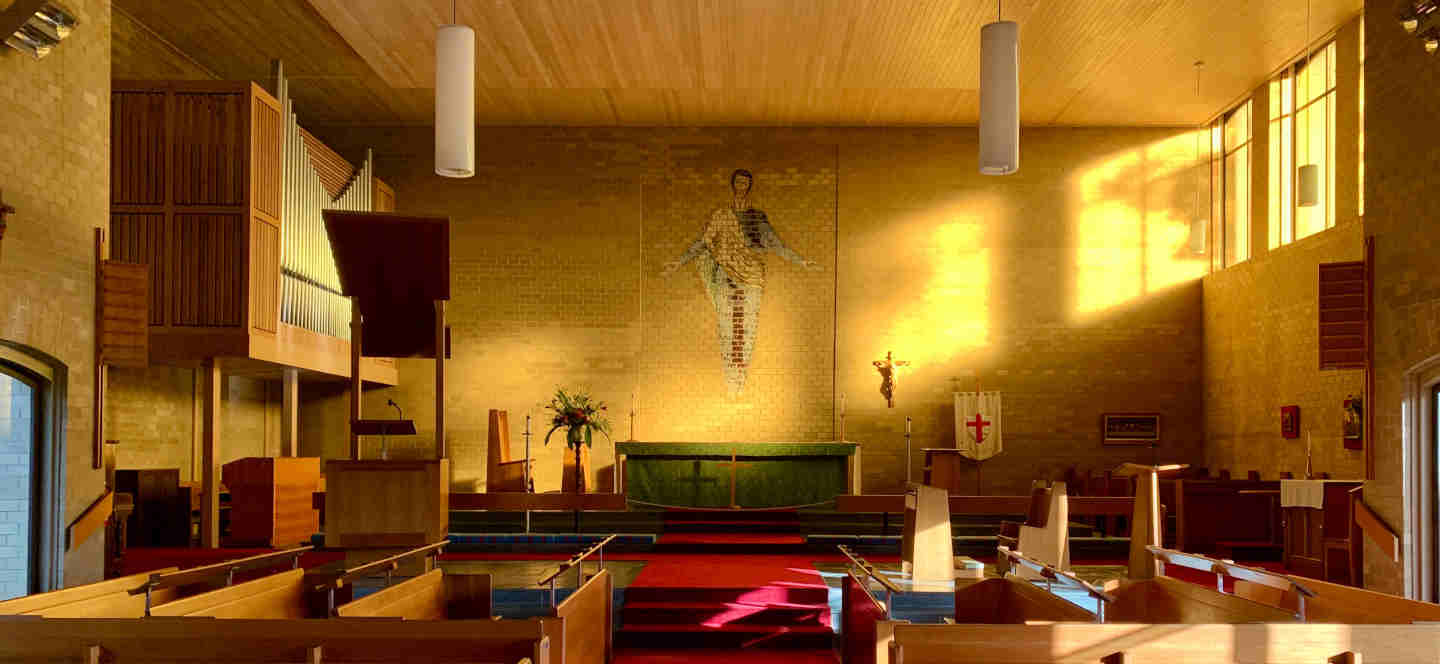The Reverend Canon Dr. Ray Cleary – Sermon for Christmas Day
Christmas 2017
There is often a contrast, a difference between words spoken, ideas expressed and the experience each of us feel and see in the world around us. The message of Christmas is no exception. Expressions of hope to be found in words of ‘peace and goodwill to all’ are too often blemished by acts of war, terrorism, abuse of power, ignorance, self-interest and greed. The words we express at Christmas of peace and goodwill do not necessarily reflect our actions, policies or lives day by day. Our highest ideals of a safe, secure and compassionate community often destroyed by acts of vandalism, aggression and greed. Once again we have seen the tragedy of innocent lives injured with the act of a delusional and drug affected driver on Thursday evening in the city centre. The drowning of a father rescuing his two children from the sea at Skynes creek is another reminder of tragedy at Christmas time. Then there are the road accidents that change the lives of families and individuals forever and the over consumption of alcohol that brings other tragedies.
Families under siege or persecution are unlikely to experience Christmas as a happy and joyous occasion if their very life, their identity and sense of belonging is under threat, and their homes or place are being vilified or destroyed. Others for whom life is an ongoing struggle are pressured into purchasing gifts for their children and others they cannot afford out of guilt. We can only ponder on how asylum seekers and refuges across the Globe are experiencing the season if any, with a sense of joy and peace at this time. The plight of the women of Sudan living in refugee camps in Uganda with the murder of their husbands, and new born children is a chilling reminder to us all of the fragility of the global human family. Of course this is a reflection not only of others but the Church also. Over and over again I have been told stories of people hurt by the actions and words of the church and who see little substance to words of love and forgiveness.
The starkness of this statement will be seen this year in the celebrations of Christmas in Bethlehem the birthplace of Jesus, where the ongoing conflict between Israel and Palestine shatters the message of hope proclaimed in the Christ child.
Likewise a parent who has lost a child or who has experienced personal hurt during the year may feel apprehensive or ambivalent about the Christmas season.
At home here in Australia, as in many other parts of the world Christmas celebrations this year will be muted by the threats of war, and unrest in many parts of the globe. Some municipal Councils have decided to ignore Christmas, although still have parties for their staff. Others will experience little joy due to homelessness, family violence and loneliness. During my time at Anglicare Foster children who went home at Christmas often returned early, and were distressed by what they experienced and saw at home.
Christmas however has the capacity and the potential to be a change experience and to be a time for the celebration of the potential of the human family to live in harmony and to pursue justice. This claim is at the heart of the religious message of Christmas, but it equally applies to a multicultural celebration of the season. Luke reminds us that the God of the universe snuck into world as a baby, not arriving in power and beauty but in poverty. He came for the life of all not just the religious and compliant.
Christmas condemns all acts of terrorism. Christmas denounces all misuse of power and greed. Christmas is more than family celebrations and the buy at all costs marketing we have experienced over the past few weeks. It is not only about giving but also receiving. Christmas seeks to offer a way forward, a challenging and radical way forward that acknowledges our capacity for evil and yet abounds in hope.
In the birth of the Christ child God enters fully into the created world and challenges the powers that seek to destroy and exploit. To acknowledge such a faith commitment is to commit all of us to the discovery of God in human lives often in the places we least expect to find him.
This Christmas the question each of us should ask ourselves is ‘who is the victim and who the perpetrator of poverty, hunger and homelessness’? How have we as Christians contributed to people turning their back on God and faith? How may we make amends? A close examination of the answers is likely to be both disturbing and challenging. The answers are likely to challenge our talk, our judgements, and moralising about others.
Christmas is more than tinsel, parties and family gatherings. Christmas seeks to restore hope and proclaims peace as possible. The infant child of Bethlehem symbolises the potential of every new child to act and live according to the words of the prophet Micah, “to do justice, and to love kindness, and to walk humbly with your God”.
So be it this Christmas.
